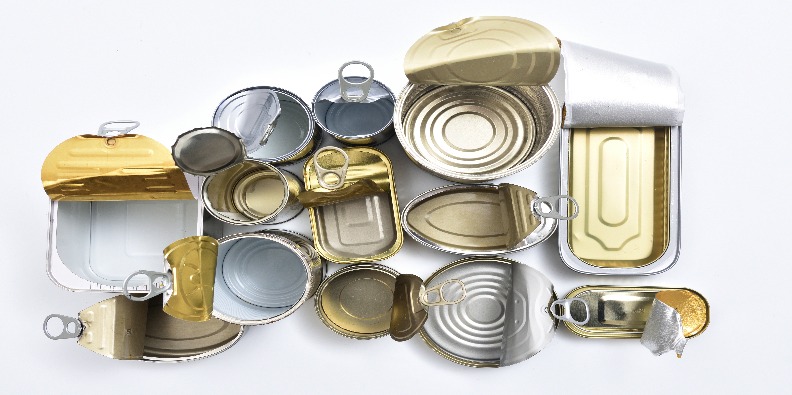Tests de migration spécifiques

| Substances et matériaux plastiques en contact avec les aliments | Migration spécifique [2,2-bis (4- hydroxyphényl) propane (Bisphénol A)] Analyse |
| Substances et matériaux plastiques en contact avec les aliments | Migration Spécifique - Détermination des Dérivés Epoxy (BADGE.2H2O; BADGE.2HCl; BADGE.H2O.HCl; BADGE.H2O; BADGE.HCl; BADGE; BFDGE; NOGE) |
| Substances et matériaux plastiques en contact avec les aliments | Migration spécifique - Détermination des amines aromatiques primaires (2,4,5-Trimethylaniline (2,4,5-TMA); 2,4-Diaminoanisole (4-M-m-PDA); 2,4-Diaminotolunene (2,4-TDA); 2,4-Dimethylaniline (2,4-DMA); 2,6-Dimethylaniline (2,6-DMA); 2-Methoxy-5-methylaniline (2-M-5-MA); 2-Methyl-m-phenylenediamine (2,6-TDA); 4,4'-Diaminodiphenylmethane (4,4'-MDA); 4,4'-Methylene-bis-(2-methyl-aniline) (4,4'-MDoT); 4,4'-Oxydianiline (4,4'-DPE); 4-Aminobiphenyl (4-ABP); 4-Chloro-2-methylaniline (4-CoT); 4-Chloroaniline (4-CA); Aniline (ANL); Benzidine (BNZ); m-Phenylenediamine (m-PDA); o-Anisidine (o-ASD); o-Tolidine (3,3'-Dimethylbenzidine) (3,3'-DMB); o-Toluidine (o-T); p-Phenylenediamine (p-PDA) |
| Substances et matériaux plastiques en contact avec les aliments |
Migration spécifique - Détermination des métaux lourds (aluminium (Al), cuivre (Cu), baryum (Ba), zinc (Zn), fer (Fe), cobalt (Co), lithium (Li), manganèse (Mn), nickel ( Ni))
|
| Matériaux en aluminium et en alliage d'aluminium |
Spécifique - Détermination de l'aluminium
|
| Substances et matériaux plastiques en contact avec les aliments |
Migration spécifique - Détermination des phtalates (acide phtalique, ester dibutylique (DBP) ; acide phtalique, ester benzylbutylique (BBP) ; acide phtalique, ester bis(2-éthylhexylique) (DEHP) ; (DIDP) ; DINP)
|
SPESİFİK MİGRASYON ANALİZLERİ
Bisphenol A (BPA) is a synthetic organic compound that exists as a colorless solid. Used in the production of plastic and epoxy resins, BPA makes plastics harder and clearer.
BPA is used in the production of many products. Especially, BPA can be found in food packaging, baby bottles, water bottles, plastic cups.
"Bisphenol - A (BPA) Determination" is carried out on plastic materials and materials.
You can contact us for "Bisphenol - A Determination" in packaging materials.
Epoxy is a chemical resistant to water, acidity and alkali. Epoxy and its derivatives are generally used in the process of coating the inner surfaces of canned food with lacquer.
- BADGE (2,2-bis (4-hydroxyphenyl) propane bis (2,3-epoxypropyl) ether)
-BFDGE (Bis (hydroxyphenyl) methane bis (2,3-epoxypropyl) ether)
- NOGE (Novalak glisidil eteri)
Epoxy derivatives such as> are tested within the scope of the “Turkish Food Codex Communiqué on Restriction of the Use of Certain Epoxy Derivatives in Substances and Materials in Contact with Food”.
"Determination of Epoxy and Its Derivatives" is carried out on plastic materials and materials.
You can contact us for "Determination of Epoxy and Derivatives" in packaging materials.
One of the most important parameters in specific migration is aromatic amines. By definition, aromatic amines are compounds in which the nitrogen atom in the amino group is directly attached to the aromatic ring. Aniline, one of the aromatic amines, is used in many areas of industry, especially in the production of medicine, paint, explosives and plastics.
Primary aromatic amines are prohibited carcinogenic substances. It may adversely affect human health by being used in packaging materials and contaminating food. For these reasons, it is a parameter that should be tested in packaging materials.
"Primary Aromatic Amine Determination" is carried out on plastic materials and materials.
You can contact us for "Primary Aromatic Amine Determination" in packaging materials.
Heavy metals have harmful effects on the human body and their quantities are limited in packaging materials that come into contact with food. Heavy metals that can be found in packaging materials are tested within the scope of the "Turkish Food Codex Regulation on Materials and Materials in Contact with Food" and "Turkish Food Codex Communiqué on Plastic Materials and Materials in Contact with Food".
Heavy metals are toxic substances found in nature in trace amounts. Heavy metals can be contaminated from the environment, from animals fed with feeds containing heavy metals to animal products and from all materials used in the food production process.
Within the scope of heavy metal determination; Heavy metals such as Aluminum (Al), Copper (Cu), Barium (Ba), Zinc (Zn), Iron (Fe), Cobalt (Co), Lithium (Li), Manganese (Mn), Nickel (Ni) are tested.
“Heavy Metal Determination” procedures are carried out on ceramic materials, paper materials, aluminum and aluminum alloy materials, plastic materials and materials, and dyestuffs to be used in plastic materials.
You can contact us for "Heavy Metal Determination" in packaging materials.
Phthalate is a chemical used to add flexibility to plastic products.
Food packaging should not contain phthalates as they come into contact with food. According to the Communiqué on Market Surveillance and Inspection for Hazardous Chemical Substance Content of Some Consumer Products, products containing phthalates in plastic materials at concentrations higher than 0.1 percent are prohibited.
"Phthalate Determination" is carried out on plastic materials and materials.